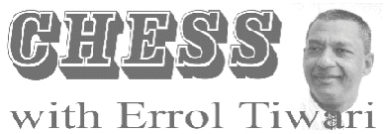“You can’t ignore it and you can’t explain it”
– Agatha Christie describing intuition.
What is intuition? It is quick and ready insight. We cannot explain it but it is real. Mikhail Tal, a Russian world champion, was a master of intuition as he perennially outfoxed his opponents all the way up to the world championship title. Tal could not explain what intuition was but he utilized it all the same.
A world chess champion is someone who searched for perfection and found it, much in the same way that Leonardo da Vinci or Michelangelo or William Shakespeare or Beethoven or a mathematical genius did. The coup de grace comes with a flash of vision. It is one of intellectual and aesthetic beauty. As such, the genius appears in any art form. He/she takes a situation that is composed of materials that is available to everybody and by sheer imagination creates something unique and almost perfect.
 Chess is undertaken in the same way. Experts say that instead of using oils or stone or words or formulae, the chess player uses the pieces at his disposal. They are his raw materials. His aim is to take them and forge them into something that expresses his own personality. It is a work of art.
Chess is undertaken in the same way. Experts say that instead of using oils or stone or words or formulae, the chess player uses the pieces at his disposal. They are his raw materials. His aim is to take them and forge them into something that expresses his own personality. It is a work of art.
I believe that when a player reaches the top, he/she has the ability to synthesize and come up with an unflawed sequence that separates him/her from all others. Tal, Garry Kasparov and Bobby Fischer, for example, were much the same as geniuses from other fields. They reached the top and there was nowhere else to go.
 Exceptional grandmasters claim they actually feel the position on the chessboard and have a good understanding of whether they are right or wrong. Fischer once said when he got a backward pawn in a game, he became the pawn fighting to extricate himself from an inferior position.
Exceptional grandmasters claim they actually feel the position on the chessboard and have a good understanding of whether they are right or wrong. Fischer once said when he got a backward pawn in a game, he became the pawn fighting to extricate himself from an inferior position.
The chess genius thinks differently from others. The unexpected thrust comes suddenly. Sometimes the prime move is not obvious, but an intelligent opponent asks himself why. What is his intention? You look but you do not see; however, you can anticipate a possible follow-up. Why did Anatoly Karpov play the prophylactic move against Kasparov? In Russia they call it a waiting move.
Kasparov says we cannot truly experience the spark of intuition in a field in which we have little practical knowledge. When a knowledgeable player finds the best move simply present in his mind without combing through hundreds of variations, that’s the power of intuition. That we cannot explain it or cannot understand it does not mean that this powerful force of recollected knowledge does not exist.
Chess Game
White: Ilya Smirin
Black: Alexander Beliavsky
Type of Game: Ruy Lopez, Morphy Defence. Odessa, 1989
1. e4 e5 2. Nf3 Nc6 3. Bb5 a6 4. Ba4 Nf6 5. O-O. Be7 6. Re1 b5 7. Bb3 d6 8. c3 O-O 9. h3. Nb8 10. d4. Nbd7 11. Nbd2 Bb7 12. Bc2 Re8 13. Nf1 Bf8 14. Ng3 g6 15. Bg5 h6 16. Bd2 Bg7 17. Qc1 Kh7 18. h4 d5 19. exd5 exd4 20. Nxd4 Ne5 21. Ne6 Qxd5 22. Nf4 Qc6 23. h5 Rad8 24. hxg6+ fxg6 25. Qb1 Rxd2 26. Bxg6+ Kg8 27. Bxe8 Nxe8 28. Qc1 Rxf2 29. Kxf2 Nd3+ 30. Nxd3 Qxg2+ 31. Ke3 Nd6 32. Rf1 Nc4+ 33. Kf4 Qd5 34. Kg4 Bc8+ 35. Kh4 Qd8+ 36. Kh5 Qe8+ 37. Kh4 Qe7+ 38. Kh5 Ne3 0-1








